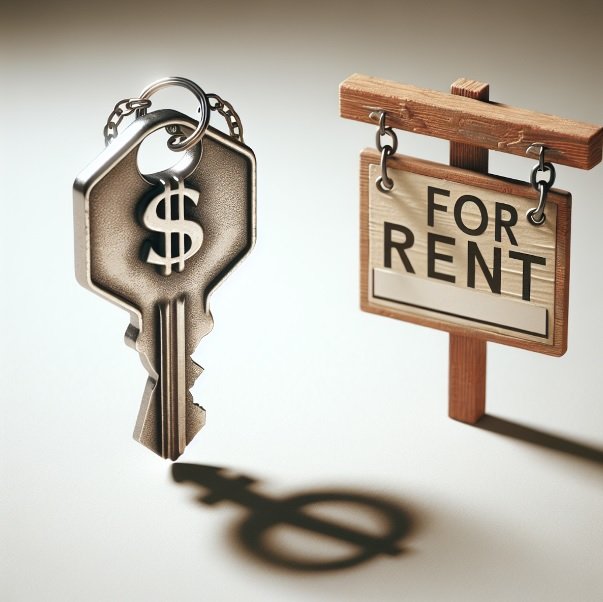Introduction
The question, “Should I buy or rent?” is a significant decision that most of us encounter at some point. This decision carries a great deal of weight, as it directly impacts your financial status, lifestyle, and long-term goals.
In the real estate market, there’s an ongoing debate on whether it’s better to buy or rent. An array of factors need to be considered when making this decision, including:
- Financial capacity
- Longevity of stay
- Market conditions
- Future plans
When deciding between buying vs renting, it’s crucial to remember that each option comes with its own set of pros and cons. Renting might offer more flexibility and less responsibility, while buying can provide stability and an opportunity to build equity.
Regardless if you’re considering a condo, an apartment or a house, your choice of whether to buy or rent should be made based on careful consideration of your personal situation.
Renting vs. Buying: Weighing the Pros and Cons
Advantages and Flexibility of Renting
Renting is synonymous with flexibility, particularly if you anticipate short-term stays or face uncertain financial circumstances. The benefits of renting include:
- No Long-Term Commitment: You’re not tied down to a property long-term, which can be ideal for those whose careers or lifestyles require mobility.
- Reduced Responsibility: Maintenance and repairs are typically the landlord’s responsibility, reducing unexpected out-of-pocket expenses.
- Lower Upfront Costs: Typically, you need only a security deposit and first month’s rent to move in, as opposed to a sizable down payment.
Wealth-Building Through Homeownership
Buying a condo is more than acquiring a place to live – it’s an investment. Homeownership allows for wealth accumulation over time through:
- Building Equity: With every mortgage payment, you gain a larger stake in your property.
- Potential Appreciation: Real estate can increase in value, enhancing your investment over time.
- Tax Benefits: Mortgage interest deductions can provide significant tax advantages.
Mobility vs. Stability
Your lifestyle dictates whether the ability to easily relocate or having a stable community holds more value.
- Renting for Mobility: If your job requires frequent relocation or you enjoy changing environments often, renting offers the freedom to move without the strings attached to property ownership.
- Buying for Stability: Owning a home fosters deeper connections with your neighborhood and provides a sense of permanence that many find rewarding.
Building Equity: A Closer Look
Equity is a cornerstone of financial stability for homeowners. As you pay down your mortgage:
- Your debt decreases while your equity increases.
- You are essentially paying yourself by investing in your future financial stability.
- Over time, this equity can serve as collateral for loans or be accessed through selling or refinancing.
The choice between renting and buying hinges on various personal factors including financial readiness, career stability, and lifestyle preferences. Each option presents distinct advantages that cater to differing needs and goals. As you navigate this decision, weigh these pros and cons against your current situation and future aspirations.
The housing market also plays a significant role in determining the viability of buying versus renting at any given time. By understanding both paths’ implications, you position yourself to make an informed decision that aligns with your long-term objectives and financial well-being.
Financial and Market Factors in the Decision-Making Process
When deciding whether to buy or rent a condo, it’s important to consider the financial and market factors that can impact your decision. By understanding these factors, you can make a more informed choice that suits your needs and goals. Let’s explore some key considerations:
1. Down Payment and Initial Investment
One of the main financial aspects to think about is the down payment, which is the upfront amount you pay when purchasing a property. This sum typically ranges from 5% to 20% of the home’s purchase price and represents a significant initial investment.
- For example, if you’re buying a $200,000 home and making a 10% down payment, you would need to pay $20,000 upfront.
2. Ongoing Costs: Rent vs Mortgage Payments
Another crucial aspect to compare is the ongoing costs associated with renting versus buying:
- Rent Payments: These are usually fixed for the duration of your lease agreement and may include utilities or additional services.
- Mortgage Payments: They typically consist of principal and interest, along with property taxes, homeowner’s insurance, and possibly private mortgage insurance if your down payment was less than 20%.
By analyzing the monthly expenses for each option, you can determine which one aligns better with your budget and financial goals.
3. Potential Appreciation vs Flexibility
As a homeowner, you have the opportunity to build equity in your property over time if its value increases. This potential for appreciation is an advantage of buying a home as it can be considered an investment.
On the other hand, renters have more flexibility when it comes to moving since they are not tied down to a specific property. This flexibility can be beneficial if you anticipate changes in your job or personal life that may require relocation.
4. Influence of Housing Market Conditions
The state of the housing market plays a significant role in determining affordability:
- In seller’s markets where demand exceeds supply, home prices tend to rise, making renting a more financially attractive option.
- Conversely, in buyer’s markets where there is an abundance of available homes, buying may become more affordable compared to renting.
Monitoring the current market conditions can help you gauge whether it’s a favorable time to buy or rent.
5. The “40% Rule” for Mortgage Affordability
A useful guideline for evaluating housing affordability is the “40% rule,” which suggests keeping your total monthly mortgage-related expenses below 40% of your income. This includes not only the mortgage payment but also taxes and insurance.
- For instance, if your monthly pre-tax income is $5,000, aiming to keep your mortgage payments below $2,000 would align with this principle.
Adhering to this rule can help ensure that homeownership remains sustainable without putting too much strain on your finances.
6. Consideration of Employment Stability
Lastly, stability in your job and income is an essential factor to consider when contemplating homeownership. Having a secure employment situation provides confidence in meeting your ongoing mortgage obligations.
Conversely, if you anticipate changes in your career that might require you to move or if there is uncertainty regarding job security, the flexibility offered by renting could be advantageous.
By carefully weighing these financial and market factors, you can make a more informed decision about whether buying or renting is the right choice for you. It’s important to remember that everyone’s situation is unique, and what works for one person may not work for another due to varying financial circumstances or life goals.
Taking into account factors such as upfront costs, long-term financial commitments, market conditions, and personal employment stability will help you assess which option aligns best with your needs.
Making an Informed Decision: Utilizing Rent or Buy Calculators
Your journey to decide between renting or buying should be underpinned by a thorough financial situation analysis. This involves considering your current financial standing, future income growth prospects, and potential market appreciation.
Why You Should Use Rent vs. Buy Calculators
Rent vs. buy calculators are excellent online tools that can help you navigate the financial complexities of this decision. These calculators take into account various factors such as:
- Your current and projected annual income
- The price of the property you’re considering
- Mortgage interest rates
- Expected duration of stay
- Potential future rent increases
By inputting these details, you can obtain a detailed comparison of the long-term costs associated with both options. This can significantly enhance the accuracy of your decision-making process.
However, while these calculators provide a valuable numerical perspective, they can’t factor in all aspects of your personal situation or local market conditions. For a more comprehensive understanding of your property market and potential real estate investment opportunities, consider seeking advice from real estate professionals. They offer a holistic view of the local property landscape and can provide tailored advice based on their experience and understanding of your specific circumstances.
Remember, numbers only tell part of the story. Your lifestyle preferences, long-term goals, and comfort level with investment risks should also play significant roles in your final decision.
The Final Verdict on Buying vs. Renting
To navigate through the ongoing rent vs buy debate, it’s necessary to keep in mind that personal circumstances play a crucial role. Your decision will depend significantly on individual preferences, financial stability, and housing market conditions – such as those currently seen in the Toronto real estate market.
Remember:
Personal Preferences
Lifestyle choices, mobility needs, and long-term goals are critical factors when deciding between a rental agreement and homeownership.
Financial Situation
Can you afford the upfront costs, ongoing mortgage payments, and other property expenses associated with buying a home? Or would renting be more financially feasible?
Housing Market Conditions
Local real estate trends influence the affordability of both renting and buying. It’s crucial to understand these dynamics before making a decision.
By considering these aspects, you’ll be better equipped to make an informed choice between renting and buying. Whether you’re leaning towards enjoying flexibility with less financial obligation or looking forward to equity building through homeownership, reflect on what best suits your current needs and future aspirations.
Your path in the real estate world should not be determined by general assumptions or peer pressure. Instead, it should result from careful consideration of your personal circumstances and comprehensive research into all variables involved. This approach can ensure that you make the most beneficial decision for your lifestyle and financial goals without regrets.




